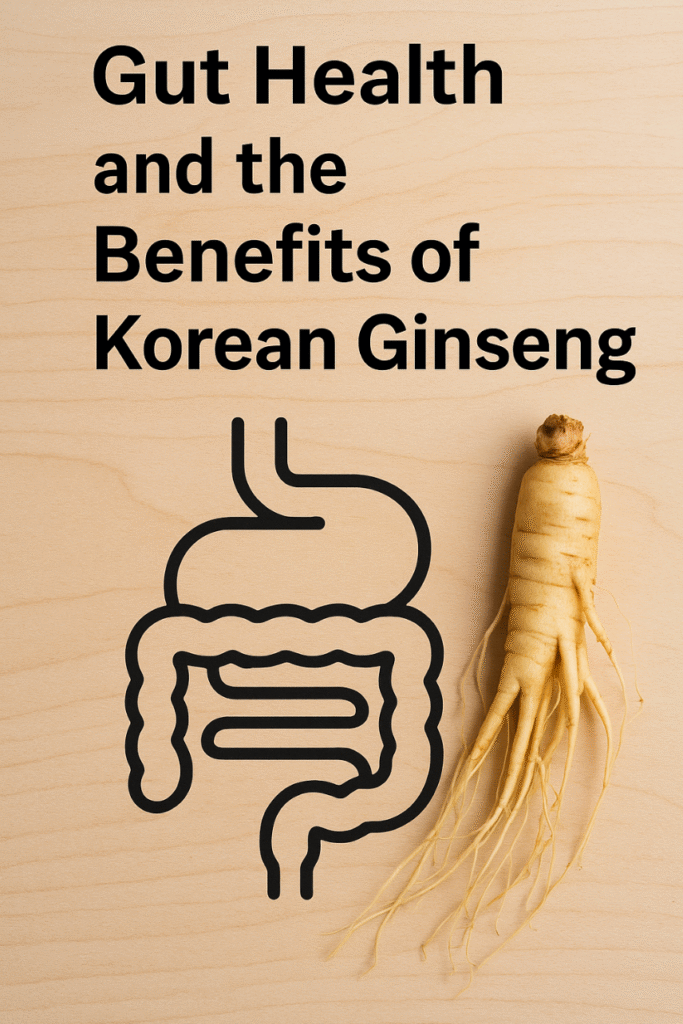In recent years, the importance of gut health has become a central topic in medical and nutritional research. The digestive system, often called the “second brain,” plays a crucial role not only in nutrient absorption but also in immune function, mental well-being, and overall vitality. Emerging studies reveal that maintaining a healthy gut microbiome can prevent chronic diseases such as obesity, diabetes, and even depression. One of nature’s most remarkable herbal remedies, Korean Ginseng (Panax ginseng), has shown profound potential to support gut health by restoring balance to the microbiota and strengthening the body’s natural defenses.
🧬 The Gut Microbiome: The Hidden Guardian of Health
The human gut contains over 100 trillion microorganisms, collectively known as the gut microbiota. These microbes play a major role in digestion, nutrient synthesis, immune regulation, and even mood stabilization.
However, poor diet, stress, antibiotics, and lack of sleep can disrupt this delicate ecosystem, leading to gut dysbiosis—an imbalance that may cause inflammation, fatigue, bloating, and long-term metabolic issues.
A healthy gut environment supports proper digestion, strong immunity, and efficient communication between the brain and the digestive tract through the gut-brain axis.
🌱 Korean Ginseng and Its Effects on Gut Health
1. Prebiotic Effect: Nourishing Beneficial Bacteria
Ginsenosides, the active compounds in Korean Ginseng, act as natural prebiotics. Once digested, they are metabolized by intestinal bacteria into compound K, which helps stimulate the growth of beneficial strains such as Lactobacillus and Bifidobacterium.
This balance improves digestion, enhances immune function, and promotes smoother bowel movements.
2. Restoring Gut Barrier Integrity
A compromised intestinal lining can lead to “leaky gut syndrome,” allowing toxins and pathogens to enter the bloodstream. Ginseng’s anti-inflammatory and antioxidant properties help strengthen intestinal walls and prevent this permeability.
3. Reducing Inflammation in the Digestive Tract
Korean Ginseng contains ginsenosides Rg1 and Rb1, which inhibit inflammatory cytokines and oxidative stress in the gut. Clinical research has shown that regular consumption reduces the symptoms of inflammatory bowel diseases (IBD), such as ulcerative colitis and Crohn’s disease.
4. Supporting the Gut-Brain Connection
The gut produces over 90% of the body’s serotonin, the “happiness hormone.” Ginseng’s adaptogenic qualities support balanced stress hormones, which in turn stabilize the gut-brain axis, reducing stress-related indigestion and anxiety-related gut discomfort.
5. Boosting Immune Defense Through Gut Flora
Because nearly 70% of the immune system resides in the digestive tract, maintaining microbial balance is key. Korean Ginseng enhances immune cell activity, helping the body respond more effectively to pathogens while maintaining internal harmony.
🥗 How to Incorporate Korean Ginseng for Digestive Wellness
- Ginseng Tea: Drink a warm cup in the morning to stimulate gentle digestion.
- Ginseng Capsules or Extracts: Use standardized supplements for consistent ginsenoside levels.
- Fermented Ginseng: Offers higher bioavailability and improved effects on gut bacteria.
- Combine with Probiotic Foods: Pairing ginseng with yogurt, kimchi, or kefir can enhance its probiotic synergy.
🔬 Scientific Insight
Modern research published in Frontiers in Pharmacology and Journal of Ginseng Research confirms that Korean Ginseng has modulatory effects on the intestinal microbiome, influencing metabolic and immune-related pathways.
Studies in both animals and humans have demonstrated improved digestion, increased diversity of beneficial gut bacteria, and reduced gut inflammation after regular supplementation.
These findings make Korean Ginseng a powerful natural option for restoring gut balance, particularly for individuals suffering from bloating, fatigue, or irritable bowel symptoms due to stress or diet.
🇰🇷 Premium Korean Ginseng Online Shop







